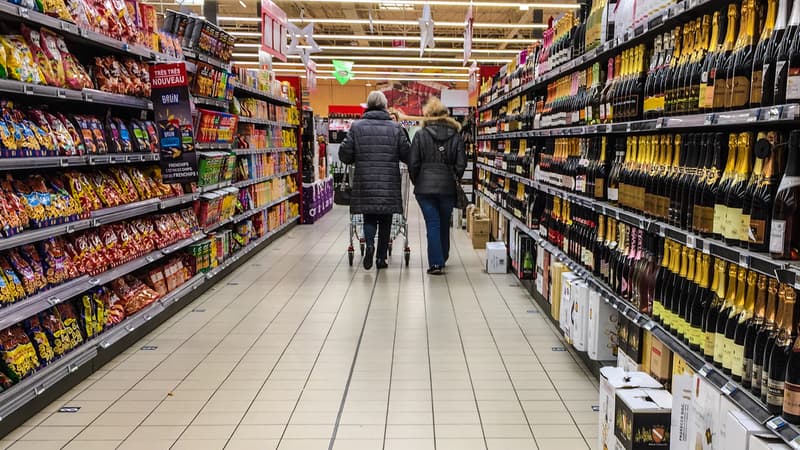“It’s crazy.” Faced with soaring costs, the French food industry is trying to keep its head above water. “The current context is incredible: we thought that 2022 would be the year of a return to normality after the health crisis. Activity has resumed well, but by no means quiet”, confirms Jean-Marie Le Bris, director of large consumer products at the Laïta dairy cooperative. The company, known by its Paysan Breton brand, is currently negotiating power contracts for next year. “When there are volumes available in the market, these are not reasonable prices,” he laments.
In fact, it is energy that concerns companies today, in particular VSEs and SMEs, which represent 98% of the 16,000 companies in the sector in France. In the Yvelines, Andrésy Confitures sails in sight: the family-owned SME consumes a large amount of gas to produce the steam needed to make its jams, for certain operations such as pasteurization, and electricity runs the machines, freezers and the refrigerators. Unlike previous years, “energy is now an important expense in our cost price,” says its president, Bruno Cassan, who has appointed an intermediary to go through the energy companies.
“It’s not possible”
The room for maneuver is limited. Many companies had already embarked on a savings policy, and lower energy consumption often requires the renewal of machinery. However, it is difficult to invest substantial sums to equip yourself with new boilers in the current situation, especially since it is difficult to know how it will evolve in the coming months. It is also necessary to prepare for possible winter outages in the event of network stress. “We could change our schedules or work at night, we have already done this this summer during the heat”, advances Bruno Cassan.
Responding to growing concern from food manufacturers, the Agriculture Minister recently pledged to “ensure” the sector is a priority if power is interrupted. Temporarily stopping production is complex, if not impossible, for these companies that work with fresh products (and supply supermarkets). “It is not possible to ‘stop and go’ because the sugar crystallizes” if the production lines are cut, explains Michel Poirrier, head of the northern confectionery Sucralliance. After each stop, everything must be cleaned with hot water before starting candy production again.
Optimize range
In addition to energy, there is the increase in the price of packaging, agricultural raw materials, logistics, not to mention supply difficulties. To deal with it, we adapted the ranges. As for Paysan Breton, Laïta has temporarily suspended the manufacture of the most complicated products to produce, and therefore the least profitable. The goal is to optimize production by focusing on large series: to avoid stock shortages of its Madame Loïk spreadable cheese, which is very successful on the shelves, the cooperative will focus on the “natural” flavor to the detriment of mature cheeses.
In Alsace, SCOP Maurer-Tempé is also adjusting the volumes of its products. If the butcher-catering, bought by its employees in 2019 after a judicial liquidation, has secured its energy contracts, it is suffering from the sharp increase in pork, a basic ingredient in Alsatian charcuterie. “We have concentrated our workforce on products from the permanent range” that present a “fair balance of costs”, specifies Analito Gomes, director of the Kingersheim plant, near Mulhouse. The end of the year celebrations in sight. Orders will be filled, but “if there are replenishment requests, we won’t go if it’s not profitable,” he says.
Price increase
Almost everyone agrees that an increase in selling prices on the shelves remains essential to stay afloat. Several waves of price increases, sometimes double digits, have already been overcome after commercial negotiations with large retailers and others are expected to come. But the right balance is hard to find: you have to offset your production costs, without putting off your regular customers in stores. “We have cut our margins,” says Anaïs Brulin, head of marketing for SCOP Alsace, because “we want the consumer to be able to continue buying our products.”
Source: BFM TV


